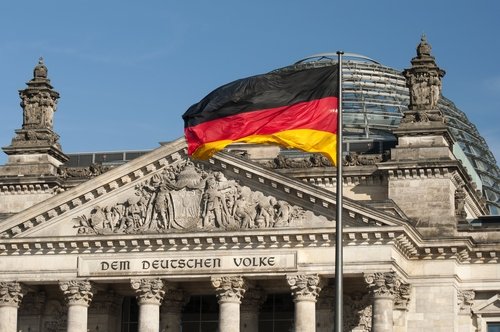Posted on August 8, 2013
by Andreas Splittgerber and Sebastian Rockstroh
 As Europe’s largest economy, one might expect Germany to provide robust protection of intellectual property assets such as trade secrets It’s true that Germany has a comprehensive set of laws protecting trade secrets. But there is no dedicated trade secrets statute, and gaps in protection remain.
As Europe’s largest economy, one might expect Germany to provide robust protection of intellectual property assets such as trade secrets It’s true that Germany has a comprehensive set of laws protecting trade secrets. But there is no dedicated trade secrets statute, and gaps in protection remain.
Under German law, “trade secrets” and “business secrets” are protected by several laws. According to the definition of the Federal Constitutional Court of Germany (order dated March 14th, 2006 — file: 1 BvR 2087/03), facts, circumstances, and/or processes qualify as trade or business secrets if:
- they are related to a particular business enterprise;
- they are known only to a limited group of people (and are therefore public);
- they are kept secret for the purposes of economic interest; and
- the business enterprise has an apparent and legitimate interest in keeping the information secret.
Manufacturing, research and development, sales figures, customer lists, business strategies, and other commercial know-how may therefore qualify as trade and business secrets under German law.
While there is no “Trade Secret Act” in Germany, trade and business secrets are protected under scattered provisions in different laws and regulations. Most provisions concern criminal law, but damages claims may also be based on these provisions. Here are the most important provisions on protection of trade secrets under German statutes as interpreted by German courts:
- Section 17 of the Act Against Unfair Competition protects business and trade secrets against unauthorized copying by employees and also against unauthorized use by anyone for the purposes of competition, for personal gain, for the benefit of a third party, or with the intent of causing damage to the owner of the business. Violations of Section 17 carry such punishments as imprisonment not exceeding three years, or a fine. This provision can have harsh consequences, but its requirements are quite specific. In practice, it often cannot be shown that the person using the trade or business secret had the necessary intent or purpose.
- Employees are obliged to keep the employer’s trade and business secrets confidential. This obligation arises from the general good-faith performance clause in Section 242 of the German Civil Code.
- Section 203 German Criminal Code provides that whoever unlawfully discloses another’s business or trade secret, which was confided to or otherwise made known to him in his capacity as a professional (such as a physician, dentist, psychologist, attorney or patent attorney), shall be subject to imprisonment not exceeding one year, or a fine.
- According to Section 30 (1) of the German Fiscal Code, public officials are obliged to observe tax secrecy. Under Section 30 (2), officials are in breach of tax secrecy if they disclose or make use of, without authorization, a trade or business secret which has become known to them in the course of their official duties, such as in administrative or auditing proceedings or in a judicial tax matter. Section 355 of the German Criminal Code states that a public official unlawfully disclosing or using such trade or business secrets shall be subject to imprisonment not exceeding two years or a fine.
- The federal Freedom of Information Act grants broad public access to official materials held by the German federal government. But like the U.S. FOIA, the act exempts certain classes of information from disclosure. One of those is business and trade secrets held by the government; these are only publicly accessible with the consent of the owner of the secret (Section 6 of the Freedom of Information Act).
- Parties negotiating over potential cooperation often share confidential information that might contain trade secrets. Under Sections 311 and 241 (2) of the German Civil Code the parties are, as soon as they start negotiations, obliged to preserve the other party’s rights and legal interests. This means each party is prohibited from making any use of the other party’s trade and business secrets; any party disclosing such trade or business secrets of the other party shall be liable for damages. To avoid disputes about whether or not information shared qualifies as a trade or business secret, executing a non-disclosure agreement before negotiations commence is recommended.
The territorial scope of application of these listed provisions varies from law to law. As a rule of thumb, the criminal law provisions apply if the offender acted in Germany or if the business whose trade and business secrets were violated is physically located in Germany. German tort law applies if the damage occurs in Germany.
German law provides solid protection for the trade secrets of companies doing business there. But since gaps remain, it’s advisable to use contracts to ensure that trade secrets are protected. As a result, it’s not uncommon for companies to include rules governing the protection of trade and business secrets in agreements with customers, suppliers, and other business partners.

